27th. Friday. Was busy as usual. Battery came. Issued rations to them.
American Civil War Chronicles
Diary of a Southern Refugee, Judith White McGuire.
June 27, 2022
June 27th.—Yesterday was a day of intense excitement in the city and its surroundings. Early in the morning it was whispered about that some great movement was on foot. Large numbers of troops were seen under arms, evidently waiting for orders to march against the enemy. A. P. Hill’s Division occupied the range of hills near “Strawberry Hill,” the cherished home of my childhood, overlooking the old “Meadow Bridges.” About three o’clock the order to move, so long expected, was given. The Division marched steadily and rapidly to the attack—the Fortieth Regiment, under command of my relative, Colonel B., in which are so many of our dear boys, leading the advance. The enemy’s pickets were just across the river, and the men supposed they were in heavy force of infantry and artillery, and that the passage of the bridge would be hazardous in the extreme; yet their courage did not falter. The gallant Fortieth, followed by Pegram’s Battery, rushed across the bridge at double-quick, and with exultant shouts drove the enemy’s pickets from their posts. The enemy was driven rapidly down the river to Mechanicsville, where the battle raged long and fiercely. At nine o’clock all was quiet; the bloody struggle over for the day. Our victory is said to be glorious, but not complete. The fighting is even now renewed, for I hear the firing of heavy artillery. Last night our streets were thronged until a late hour to catch the last accounts from couriers and spectators returning from the field. A bulletin from the Assistant Surgeon of the Fortieth, sent to his anxious father, assured me of the safety of some of those most dear to me; but the sickening sight of the ambulances bringing in the wounded met my eye at every turn. The President, and many others, were on the surrounding hills during the fight, deeply interested spectators. The calmness of the people during the progress of the battle was [continue reading…]
Among the dead I saw the handsome form of my noble school-mate, James A. Wright, of Wilmington.
June 27, 2022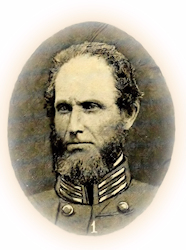
Friday, June 27th,
Dr. Campbell and I start at 4 a. m. to try to join our regiment.
At Mechanicsville we saw many wounded, and at ____ Mills, many dead and wounded. Among the dead I saw the handsome form of my noble school-mate, James A. Wright, of Wilmington.
Unable to reach our brigade we drop back through Ewell’s and Stonewall Jackson’s commands, and carry Captain Drake toward our old camp. Sleep under a tree. Our Regiment lost some men—S. Tedder, A. B. Hood and A. F. Steel of Mecklenburg.
Through Some Eventful Years
June 27, 2022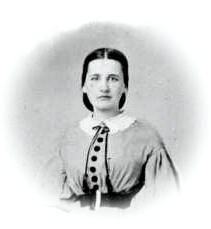
June 27th, 1862.—Brother Amos has been to Enfield to see Sister Mag and the children, though he could only stay twenty-four hours. He thinks his daughter is the prettiest baby he ever saw and Eddie wants to go back to camp with him.
Sister Mag says the wounded men are passing through Enfield every day. As soon as they are well enough to leave the hospital they are sent home or to some nearby place to be nursed back to health and other wounded men take their places in the hospitals. This is necessary for the fighting is almost continuous.
Susan Bradford is 16 years old when this entry was made.
A Diary From Dixie
June 27, 2022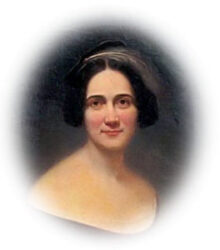
June 27th.–We went in a body (half a dozen ladies, with no man on escort duty, for they are all in the army) to a concert. Mrs. Pickens came in. She was joined soon by Secretary Moses and Mr. Follen. Doctor Berrien came to our relief. Nothing could be more execrable than the singing. Financially the thing was a great success, for though the audience was altogether feminine, it was a very large one.
Telegram from Mr. Chesnut, “Safe in Richmond” ; that is, if Richmond be safe, with all the power of the United States of America battering at her gates. Strange not a word from Stonewall Jackson, after all! Doctor Gibson telegraphs his wife, “Stay where you are; terrible battle ¹ looked for here.”
Decca is dead. That poor little darling! Immediately after her baby was born, she took it into her head that Alex was killed. He was wounded, but those around had not told her of it. She surprised them by asking, “Does any one know how the battle has gone since Alex was killed? ” She could not read for a day or so before she died. Her head was bewildered, but she would not let any one else touch her letters; so she died with several unopened ones in her bosom. Mrs. Singleton, Decca’s mother, fainted dead away, but she shed no tears. We went to the house and saw Alex’s mother, a daughter of Langdon Cheves. Annie was with us. She said: “This is the saddest thing for Alex.” “No,” said his mother, “death is never the saddest thing. If he were not a good man, that would be a far worse thing.” Annie, in utter amazement, whimpered, “But Alex is so good already.” “Yes, seven years ago the death of one of his sisters that he dearly loved made him a Christian. That death in our family was worth a thousand lives.”
One needs a hard heart now. Even old Mr. Shand shed tears. Mary Barnwell sat as still as a statue, as white and stony. “Grief which can relieve itself by tears is a thing to pray for,” said the Rev. Mr. Shand. Then came a telegram from Hampton, “All well; so far we are successful.” Robert Barnwell had been telegraphed for. His answer came, “Can’t leave here; Gregg is fighting across the Chickahominy.” Said Alex’s mother: “My son, Alex, may never hear this sad news,” and her lip settled rigidly. “Go on; what else does Hampton say?” asked she. “Lee has one wing of the army, Stonewall the other.”
Annie Hampton came to tell us the latest news–that we have abandoned James Island and are fortifying Morris Island. “And now,” she says, “if the enemy will be so kind as to wait, we will be ready for them in two months.”
Rev. Mr. Shand and that pious Christian woman, Alex’s mother (who looks into your very soul with those large and lustrous blue eyes of hers) agreed that the Yankees, even if they took Charleston, would not destroy it. I think they will, sinner that I am. Mr. Shand remarked to her, “Madam, you have two sons in the army.” Alex’s mother replied, “I have had six sons in the army; I now have five.”
There are people here too small to conceive of any larger business than quarreling in the newspapers. One laughs at squibs in the papers now, in such times as these, with the wolf at our doors. Men safe in their closets writing fiery articles, denouncing those who are at work, are beneath contempt. Only critics with muskets on their shoulders have the right to speak now, as Trenholm said the other night.
In a pouring rain we went to that poor child’s funeral –to Decca’s. They buried her in the little white frock she wore when she engaged herself to Alex, and which she again put on for her bridal about a year ago. She lies now in the churchyard, in sight of my window. Is she to be pitied ? She said she had had “months of perfect happiness.” How many people can say that ? So many of us live their long, dreary lives and then happiness never comes to meet them at all. It seems so near, and yet it eludes them forever.
______
¹ Malvern Hill, the last of the Seven Days’ Battles, was fought near Richmond on the James River, July 1, 1862. The Federals were commanded by McClellan and the Confederates by Lee.
Journal of Surgeon Alfred L. Castleman.
June 27, 2022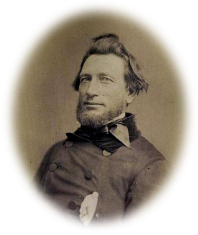
27th.–There has been great rejoicing in camp all night– no sleep for the troops. But one regiment, seeming to be callous to the good news reported last evening, by General McClellan. At 8 this A. M., I started with wagon to Liberty Hall, for my tents and other baggage. The fight on the other side had commenced two hours before. I learn that in the reports to me of yesterday, the rebel forces had been greatly overrated; that they had only about twenty-five thousand men in the fight, on McCall’s single division, of perhaps eight thousand. But both parties were strongly reinforced last night, Lee having swelled his army to about seventy-five thousand, whilst General Porter had come to the aid of McCall, with about thirty thousand. After fighting for about an hour and a half on the ground of yesterday’s battle, Porter and McCall commenced falling back, and when I crossed the Chickahominy, between 8 and 9, this morning, I passed squads, batallions, regiments, brigades of our soldiers, apparently in disorder; but as I had heard nothing of Porter’s falling back, I paid but little attention to them. I passed on without discovering what was the matter till I came so near to the advancing enemy as to barely escape capture. Riding back to the groups and brigades which I had passed, I learned that they were our scattered army, retreating before the advancing enemy. They had already fallen back about three miles, were rallying near Emerson’s Bridge, and were preparing to give battle and to prevent the farther advance of the enemy. Should we be defeated here, the railroad from Richmond to West Point, now held by us, must fall into the hands of the enemy. White House, (our base of operations), with its immense supplies and munitions, must also be lost. General Porter was preparing for a desperate struggle, which, at farthest, could not be many hours off. General McClellan, I hear, telegraphed to General Porter, now in command on that side of the river, to know whether he needed reinforcements, to which he replied that he did not; that he could hold the enemy where he was. For this, whether true or not General Porter is to-night being highly censured. He felt that it was his fight, and was unwilling that a ranking officer should be sent to him to take or share the credit. Six times the hosts of the enemy came down upon him like an avalanche, and six times were repulsed. The seventh assault has been successful, and the army has passed our lines and has proceeded in the direction of White House. As Liberty Hall was in the line of our retreat and the enemy’s pursuit, it was captured, and I of course lost everything, except the clothes I wore.
About 1 o’clock P. M. the fight commenced on our side of the Chickahominy (the right bank) at Golden’s farm, between the batteries, at long range. I had just returned from my attempted trip to Liberty Hall. Our infantry was in line of battle between the opposing batteries, all the shot and shell from both sides having to pass over it. In passing from our artillery to our infantry, it was necessary to face the enemy’s shells, which were exploding with almost continuous roar. These flashes, as they burst around me, reminded me of the wonderful “shower of falling stars” which occurred in 1850. Many of our own shells exploded as they passed over our infantry, killing a number of our men. Through this shower I had to ride, and it now seems that nothing but an interposition of Providence has saved me uninjured. About 7 P. M. the artillery ceased firing, and in a few minutes commenced an infantry fight, by the enemy’s opening fire on about one mile of our line of battle. This has been a trying day–the fight on the left bank of the river under Gen. Porter, on the result of which depended our holding or losing our base of supplies, with immense stores. That on the right bank, directed by Gen. McClellan, in which it was thought, if we succeeded, we should march unimpeded into Richmond, only six miles off. We are repulsed on the left bank; we have driven the enemy on the right bank. Shall we lose White House and the Railroad as a consequence of our defeat on the left? Shall we inarch into Richmond as the result of our success on the right? To-morrow will tell.
May God preserve me from another battle in the dark. The sight is grand, but terrible, beyond my wish to witness again.
Drowned Out and Starved Out
June 27, 2022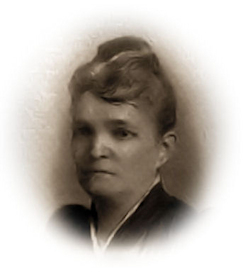
Friday, June 27.—As soon as the cook was up again, we resumed preparations. We put all the clothing in order and had it nicely done up with the last of the soap and starch. “I wonder,” said Annie, “when I shall ever have nicely starched clothes after these? They had no starch in Natchez or Vicksburg when I was there.” We are now furbishing up dresses suitable for such rough summer travel. While we sat at work yesterday the quiet of the clear, calm noon was broken by a low, continuous roar like distant thunder. To-day we are told it was probably cannon at Vicksburg. This is a great distance, I think, to have heard it—over a hundred miles.
H. and Max have bought a large yawl and are busy on the lake bank repairing it and fitting it with lockers. Aunt Judy’s master has been notified when to send for her; a home for the cat Jeff has been engaged; Price is dead, and Sancho sold. Nearly all the furniture is disposed of, except things valued from association, which will be packed in H.’s office and left with some one likely to stay through the war. It is hardest to leave the books.
Note: To protect Mrs. Miller’s job as a teacher in post-civil war New Orleans, her diary was published anonymously, edited by G. W. Cable, names were changed and initials were generally used instead of full names—and even the initials differed from the real person’s initials. (Read Dora Richards Miller’s biographical sketch.)
A Confederate Girl’s Diary
June 26, 2022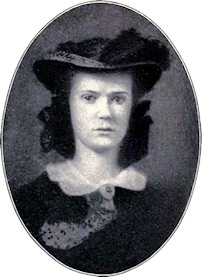
June 26th.
Yesterday morning, just as I stepped out of bed I heard the report of four cannon fired in rapid succession, and everybody asked everybody else, “ Did you hear that?” so significantly, that I must say my heart beat very rapidly for a few moments, at the thought of another stampede. At half-past six this morning I was wakened by another report, followed by seven others, and heard again the question, “Did you hear that?” on a higher key than yesterday. – It did not take me many minutes to get out of bed, and to slip on a few articles, I confess. My chief desire was to wash my face before running, if they were actually shelling us again. It appears that they were only practicing, however, and no harm was intended. But we are living on such a volcano, that, not knowing what to expect, we are rather nervous.
I am afraid this close confinement will prove too much for me; my long walks are cut off, on account of the soldiers. One month to-morrow since my last visit to the graveyard! That haunts me always; it must be so dreary out there! Here is a sketch of my daily life, enough to finish me off forever, if much longer persisted in. [continue reading…]
Downing’s Civil War Diary.–Alexander G. Downing.
June 26, 2022
Thursday, 26th–The Eleventh Iowa went out on picket. The Third Brigade of the Sixth Division was inspected by the general inspector of the army. Men and camp both passed inspection quite satisfactorily.
War Diary of Luman Harris Tenney.
June 26, 2022
26th. Turned over some commissary stores to the 4th and 9th Wisconsin, who came in that evening. Wrote to Fannie. Another false alarm. Citizens expected an attack.
Village Life in America
June 26, 2022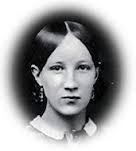
June. – I visited Eureka Lawrence in Syracuse and we attended commencement at Hamilton College, Clinton, and saw there, James Tunnicliff and Stewart Ellsworth of Penn Yan. I also saw Darius Sackett there among the students and also became acquainted with a very interesting young man from Syracuse, with the classic name of Horace Publius Virgilius Bogue. Both of these young men are studying for the ministry. I also saw Henry P. Cook, who used to be one of the Academy boys, and Morris Brown, of Penn Yan. They talk of leaving college and going to the war and so does Darius Sackett.
0
June 26, 2022
JUNE 26th.—To-day a letter, hastily written by Gen. Lee to the Secretary of War, stated that his headquarters would be at _______, or beyond that point, whence couriers could find him if there should be anything of importance the Secretary might desire to communicate during the day. This is the day of battle! Jackson is in the rear of McClellan’s right wing! I sent this note to the Secretary at once. I suppose Mr. Randolph had been previously advised of Gen. Lee’s intention to fight to-day; but I do not know it. I know some of the brigadier-generals in the army do not know it; although they have all been ordered to their commands. This is no uncommon order; but it is characteristic of Lee’s secretiveness to keep all of his officers in profound ignorance of his intentions, except those he means to be engaged. The enemy cannot possibly have any intimation of his purpose, because the spies here have no intelligence; and none are permitted to pass the rear pickets in sight of the city without my passport. What a change since the last battle!
To-day, in compliance with an intimation of the President, all in the departments, who felt so disposed, formed a military organization for the defense of the city, and especially of the archives, which had been brought back since the assumption of command by Gen. Lee. Col. Bledsoe denounced the organization as a humbug! Defending the government, or readiness to defend it, in such times as these, is no humbug! In the fluctuations of a great battle, almost in the suburbs of the city, a squadron of the enemy’s horse might penetrate even to the office of the Chief Executive, when a few hundred muskets, in the hands of old men and boys, might preserve the papers.
After dinner I repaired, with Custis and a few friends, to my old stand on the hill north of the Jews’ Cemetery, and sat down in the shade to listen. Many persons were there as usual—for every day some firing could be heard—who said, in response to my inquiries, that distant guns had been heard in the direction of the Pamunky River.
“That is Jackson!” I exclaimed, as the sounds were distinctly discerned by myself; “and he is in their rear, behind their right wing!”
All were incredulous, and some doubted whether he was within a hundred miles of us. But the sounds grew more distinct, and more frequent, and I knew he was advancing. But how long could he advance in that direction without being overwhelmed? Everywhere else along the line a deathlike silence reigned, that even the dropping fire of the pickets, usually so incessant, could be heard.
This suspense continued only a few minutes. Two guns were then heard northeast of us, and in such proximity as to startle some of the anxious listeners. These were followed by three or four more, and then the fire continued with increasing rapidity. This was Gen. A. P. Hill’s division in front of the enemy’s right wing, and Lee’s plan of battle was developed. Hill was so near us as to be almost in sight. The drums and fifes of his regiments, as they marched up to the point of attack, could be easily heard; how distinctly, then, sounded his cannon in our ears! And the enemy’s guns, pointed in the direction of the city, were as plainly discerned. I think McClellan is taken by surprise.
One gentleman, who had been incredulous on the subject of a battle to-day, held his watch in his hand ten minutes, during which time one hundred and ninety guns were heard. Saying he believed a battle was in progress, he replaced the watch in his pocket, and sat down on the ground to listen.
Another hour, and the reports come with the rapidity of seconds, or 3600 per hour! And now, for the first time, we hear the rattle of small arms. And lo! two guns farther to the right,—from Longstreet’s division, I suppose. And they were followed by others. This is Lee’s grand plan of battle: Jackson first, then Hill, then Longstreet—time and distance computed with mathematical precision! The enemy’s balloons are not up now. They know what is going on, without further investigations up in the air. The business is upon earth, where many a Yankee will breathe his last this night! McClellan must be thunderstruck at this unexpected opening of a decisive battle. Our own people, and even our own general officers, except those who were to participate in the attack, were uninformed of Lee’s grand purpose, until the booming of Jackson’s guns were heard far on our left.
As the shades of evening fall, the fire seems to increase in rapidity, and a gentle breeze rising as the stars come out, billows of smoke are wafted from the battle-field. And now, occasionally, we can distinctly see the bursting of shells in the air, aimed too high by the enemy, and exploding far this side of our line of battle.
Darkness is upon us, save the glimmer of the stars, as the sulphurous clouds sink into the humid valleys. But the flashes of the guns are visible on the horizon, followed by the deep intonations of the mighty engines of destruction, echoing and reverberating from hill to hill, and through the vast valley of the James in the rear.
Hundreds of men, women, and children were attracted to the heights around the city to behold the spectacle. From the Capitol and from the President’s mansion, the vivid flashes of artillery could be seen; but no one doubted the result. It is only silence and inaction we dread. The firing ceased at nine o’clock p.m. The President was on the field, but did not interfere with Lee.
I heard such noise as I had never heard before.
June 26, 2022
Thursday, June 26th
I was sick in my tent. Before day I heard such noise as I had never heard before. Everything in motion, troops, troops, wagons, wagons, artillery, artillery. Heard cannons from 5 p. m. to 6 p. m., 30 per minute; at 7:30, 40 per minute. Too unwell to go to my men. Heard constant musketry. Oh, that I could be there to comfort the wounded and dying, and to encourage the fighting.
…escaping from Stonewall Jackson!
June 26, 2022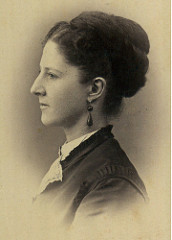
Eliza Woolsey Howland’s Journal.
. . . June 26th. Running away down the Pamunkey again as fast as we can go, escaping from Stonewall Jackson!
All night the wood choppers were at work cutting down the woods at the White House to give the gunboats a chance to command the land beyond, and just now as we passed, the banks were shorn and the pretty little place laid bare. The pickets had been driven in, and Jackson was supposed to be close at hand. Eighty wounded were brought down last night and put on board the Knickerbocker. Twelve more and a few sick came down this morning. The Whilldin follows us, nearly full of sick and wounded.
The rumor to-day is that all communication with the front is stopped, to conceal an advance of our army.
Journal of Surgeon Alfred L. Castleman.
June 26, 2022
26th.–The forenoon of to-day passed something as did the afternoon of yesterday. Asked for transportation to bring my tents and baggage from Liberty Hall. Cannot have it till to-morrow; so, having nothing to eat, nor any place to shelter, have lived on the kindness of my friends.
About 2 o’clock P. M., ” Stonewall Jackson” and General Ewell, from the North, and Generals Lee, Longstreet and Hill, from Richmond, having united their forces to the number (reported) of about one hundred thousand, made an attack on General McCall’s division, which was strongly posted and fortified about a mile and a half east of Mechanicsville, on the left bank of the Chickahominy. This is about four miles from where we are encamped on the right of the river. The fight was severe, every musket and artillery shot being distinctly heard at our quarters. Our excitement, during the whole of the afternoon, has been intense. The firing ceased at about 9 o’clock in the evening. A few minutes later, orderlies and aids-de-camp were dashing from regiment to regiment, reading a dispatch from General McClellan, that “Stonewall Jackson is thoroughly whipped.” Great rejoicing and cheering in camps. But, strange–one regiment to whom it was read, never, during the whole excitement, raised a cheer or manifested one symptom of elation. That regiment is the Fifth “Wisconsin Volunteers. It has been under General McClellan’s personal friend and relative, Brigadier General Winnfield Scott Hancock, for whom it has won whatever of reputation that Brigadier General claims to have. Can it be possible that this favorite regiment has so far lost its confidence in the Brigadier as to distrust the statement of his friend, the Commander-in-Chief? However this may be, I have heard several of them remark that “it will be time for us to cheer when we know it is true.” Significant.
“…he hears such favorable accounts of the state of affairs here that he is going to send 300 of his worst cases for us to care for.”
June 26, 2022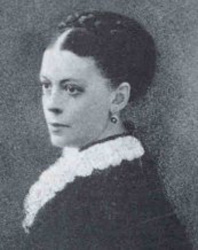
Sarah Chauncey Woolsey to Georgeanna Muirson Woolsey.
Linen Room, New Haven Hospital,
June 26th, ’62.
My dearest G.: A lull in business gives me a chance to write a few lines to you and tell you how glad I was last night to find your letter waiting for me when I got home from my day here. . . . What wonder that you have not written when I have never found time to write until after ten o’clock at night. . . . One of my pets here among the men is sure that you and Eliza are the ladies who were in a large tent on shore at White House, and brought him some bowls of bread and milk and swigs of strong drink of some kind. He was so interested to make sure of the point that I promised to bring up your picture for him to see and compare with his recollections. . . . The Surgeon-General has written to Dr. Jewett to say that he hears such favorable accounts of the state of affairs here that he is going to send 300 of his worst cases for us to care for. Inspector-General Hammond is coming on Saturday to see with his own eyes, and we are to be swept and garnished for his benefit. Mrs. Hunt (“H. H.”) helps me here often; mends clothes by the hour and comes for three days during the week to write letters for the men. . . . My fortnight’s experience here convinces me that I could soon acquire the art of keeping, not an “Hotel,” but a small country variety store. There is the same run of customers, the taking of stock, the arranging of the goods, the sweeping-up and closing of the shutters at night. My stock comprises almost everything–shirts and collars, cravats and suspenders, coats and trousers, vests and shoes, handkerchiefs, sheets, pillows and pillow-cases, rags, bandages, soap, thread, needles, tape, buttons, combs, brushes, hats, fans, cotton wadding, water beds (2), stockings, oranges, lemons, bay rum, camphor, stationery, towels, dust-pans, brushes and mosquito netting, and this morning a woman bolted in, saying, “Is it in this room that the corpse is?–they tell me that it is in this end of the passage, and I thought I should like to see him!” I didn’t happen to have one, however, and she seemed quite aggrieved. . . . Jenny is somewhat better, and the baby lovely as can be. . . . She is a dear little puss, and one of the great obstacles to my entire devotion to my country.
Rebel War Clerk
June 25, 2022
JUNE 25th.—The people of Louisiana are protesting strongly against permitting Gen. Lovell to remain in command in that State, since the fall of New Orleans (which I omitted to note in regular order in these chronicles), and they attribute that disgraceful event, some to his incompetency, and others to treason. These remonstrances come from such influential parties, I think the President must listen to them. Yes, a Massachusetts man (they say Gen. L. came froth Boston) was in command of the troops of New Orleans when that great city surrendered without firing a gun. And this is one of the Northern generals who came over to our side after the battle of Manassas.
Downing’s Civil War Diary.–Alexander G. Downing.
June 25, 2022
Wednesday, 25th–The weather is very hot today and our camp is becoming very dry and dusty. Twenty-seven men were detailed this morning to clean up our camp for general inspection.
War Diary of Luman Harris Tenney.
June 25, 2022
June 25th. Issued the remainder of the ten days’ rations taken along. Received a letter from home.
I think now we need not have left Charleston at all.
June 25, 2022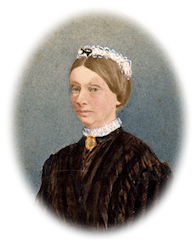
June 25
Mr Grimball still in Town but expected to day, he sent me a letter from Mary Wilcocks about Mrs McAllister, Mrs Butler’s daughter. Her health is in such a critical state that it was thought proper to inform her Mother. She was dreadfully distressed, and at once said she would be glad to go on to the North to see her daughter.—Mr Grimball will go with her to Richmond to get her through.—if possible. This breaks up our pleasant housekeeping, but I am very glad we are here and able to have Papa with us, for he is very feeble, and much changed by his troubles and his age.—
Mr Wilkins is fortunate in getting a small house containing 4 rooms for $15 per Month where she will live with her daughters more comfortably, and she thinks more reasonably, than boarding.—
Gabriella and Charlotte were confirmed in Charleston just before we left there and last Sunday it being Communion Sunday I had the great comfort of having my 3 daughters with me partaking of that Sacrament.—I pray that they may earnestly walk in a Christian life.
The Battle near Richmond is a glorious victory for us we have met with great losses in the lives of valuable young men but this with the signal repulse on James Island are very telling in shortening the war.—Letters from Mr Grimball from Richmond, Mrs Butler still there hoping to get through. The Rail Road had been torn up and if she succeeds in getting through she will have to ride two days in a carriage to Fredricksburg.—
We are getting on here well enough I think now we need not have left Charleston at all, but the Change will be of great service to all of us and already has done Gabriella a great deal of good. William has made another unsuccessful effort to obtain a Commission that way to distinction is evidently closed to him, and we may just as well reconcile ourselves to it. I feel very anxious about John, he wrote to his Father asking for money and was sent a letter containing $50. which he never received and as he was put to inconvenience by it we are quite annoyed.—
He was at Atlanta Georgia getting Ordinance stores for the Gun Boat.—
A Diary From Dixie
June 25, 2022
June 25th.–I forgot to tell of Mrs. Pickens’s reception for General Hampton. My Mem dear, described it all. “The Governess” (“Tut, Mem! that is not the right name for her–she is not a teacher.” “Never mind, it is the easier to say than the Governor’s wife.” “Madame la Gouvernante” was suggested. “Why? That is worse than the other!”) ” met him at the door, took his crutch away, putting his hand upon her shoulder instead. “That is the way to greet heroes,” she said. Her blue eyes were aflame, and in response poor Wade smiled, and smiled until his face hardened into a fixed grin of embarrassment and annoyance. He is a simple-mannered man, you know, and does not want to be made much of by women.
The butler was not in plain clothes, but wore, as the other servants did, magnificent livery brought from the Court of St. Petersburg, one mass of gold embroidery, etc. They had champagne and Russian tea, the latter from a samovar made in Russia. Little Moses was there. Now for us they have never put their servants into Russian livery, nor paraded Little Moses under our noses, but I must confess the Russian tea and champagne set before us left nothing to be desired. “How did General Hampton bear his honors?” “Well, to the last he looked as if he wished they would let him alone.”
Met Mr. Ashmore fresh from Richmond. He says Stonewall is coming up behind McClellan. And here comes the tug of war. He thinks we have so many spies in Richmond, they may have found out our strategic movements and so may circumvent them.
Mrs. Bartow’s story of a clever Miss Toombs. So many men were in love with her, and the courtship, while it lasted, of each one was as exciting and bewildering as a fox-chase. She liked the fun of the run, but she wanted something more than to know a man was in mad pursuit of her; that he should love her, she agreed, but she must love him, too. How was she to tell ? Yet she must be certain of it before she said “Yes.” So, as they sat by the lamp she would look at him and inwardly ask herself, “Would I be willing to spend the long winter evenings forever after sitting here darning your old stockings?” Never, echo answered. No, no, a thousand times no. So, each had to make way for another.
Woolsey Family during the War.
June 25, 2022
Eliza Woolsey Howland’s Journal.
. . . June 25th. General Van Vliet says that if I want to go to the front at any time and will send him word, he will have his wagon meet me and take me over to J’s camp. This morning Dr. Bigelow came back to our boat from the front.
Village Life in America
June 24, 2022
June.–Anna and I had a serenade last night from the Academy Glee Club, I think, as their voices sounded familiar. We were awakened by the music, about 11 P.M., quite suddenly and I thought I would step across the hall to the front chamber for a match to light the candle. I was only half awake, however, and lost my bearings and stepped off the stairs and rolled or slid to the bottom. The stairs are winding, so I must have performed two or three revolutions before I reached my destination. I jumped up and ran back and found Anna sitting up in bed, laughing. She asked me where I had been and said if I had only told her where I was going she would have gone for me. We decided not to strike a light, but just listen to the singing. Anna said she was glad that the leading tenor did not know how quickly I “tumbled” to the words of his song, “O come my love and be my own, nor longer let me dwell alone,” for she thought he would be too much flattered. Grandfather came into the hall and asked if any bones were broken and if he should send for a doctor. We told him we guessed not, we thought we would be all right in the morning. He thought it was Anna who fell down stairs, as he is never looking for such exploits in me. We girls received some verses from the Academy boys, written by Greig Mulligan, under the assumed name of Simon Snooks. The subject was, “The Poor Unfortunate Academy Boys.” We have answered them and now I fear Mrs Grundy will see them and imagine something serious is going on. But she is mistaken and will find, at the end of the session, our hearts are still in our own possession.
When we were down at Sucker Brook the other afternoon we were watching the water and one of the girls said, “How nice it would be if our lives could run along as smoothly as this stream.” I said I thought it would be too monotonous. Laura Chapin said she supposed I would rather have an “eddy” in mine.
We went to the examination at the Academy today and to the gymnasium exercises afterwards. Mr. Noah T. Clarke’s brother leads them and they do some great feats with their rings and swings and weights and ladders. We girls can do a few in the bowling alley at the Seminary.
Rebel War Clerk
June 24, 2022
JUNE 24th.—Gen. Lee’s plan works like a charm! Although I have daily orders from Mr. Randolph to send persons beyond our lines, yet the precautions of Lee most effectually prevent any spies from knowing anything about his army. Even the Adjutant-General, S. Cooper, don’t know how many regiments are ordered into Virginia, or where they are stationed. Officers returning from furlough, cannot ascertain in the Adjutant-General’s office where their regiments are! They are referred to me for passports to Gen. Lee’s headquarters. No man with a passport from Gen. Winder, or from his Provost Marshal, can pass the pickets of Gen. Lee’s army. This is the harbinger of success, and I predict a career of glory for Lee, and for our country. There are some vague rumors about the approach of Stonewall Jackson’s army; but no one knows anything about it, and but few believe it. Recent Northern papers say he is approaching Winchester, and I see they are intrenching in the valley to guard against his terrible blows. This is capital! And our people are beginning to fear there will be no more fighting around Richmond until McClellan digs his way to it. The moment fighting ceases, our people have fits of gloom and despondency; but when they snuff battle in the breeze, they are animated with confidence. They regard victory as a matter of course; and are only indignant at our long series of recent reverses, when they reflect that our armies have so seldom been led against the embattled hosts of the enemy.